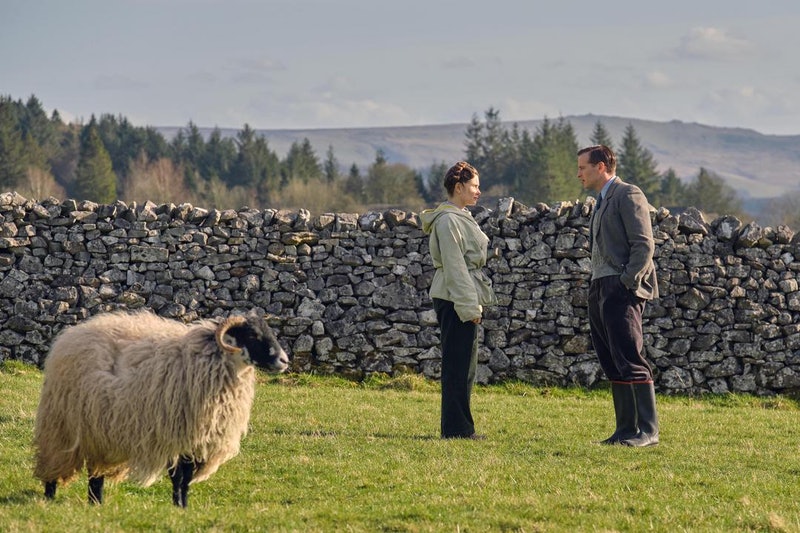Nicholas Ralph, it seems, is a lot like the rest of us.
Yes, he’s a TV star. In “All Creatures Great and Small” – the gentle pleasure that starts its second season at 9 p.m. Sunday (Jan. 9) on PBS – he has the lead role of James. But as a viewer, he keeps wishing James would express his feelings to Helen. (They’re shown here.)
“I was screaming at the telly, ‘Say something’ …. I hope that’s how an audience feels when they watch it,” Ralph said, in a virtual press conference with the Television Critics Association.
It is. James is a deeply decent Scottish chap, now a veterinarian in small-town, 1937 England. Helen – smart, resourceful and attractive – is helping her widowed father run the family farm.
Last season, she very nearly married a prosperous local guy. James, as usual, said nothing.
“There’s a long tradition of British men onscreen having trouble opening up to women onscreen,” said producer Colin Callender. “It is a long, long tradition.”
Soon, James left to help out at a clinic near his parents’ home. Now, three months later, he’s ready to return and to meet Helen again. It’s a “real slow burn and a real lovely kind of story,” Ralph said.
James is working for Siegfried (Samuel West), an exacting boss who now bears a secret: His younger brother Tristan (Callum Woodhouse) flunked a final course at vet school and didn’t graduate. Shielding Tristan from disappointment, he glanced at the letter, congratulated him for passing and threw it away.
Meanwhile, Siegfried’s love life is dormant, as usual; Tristan’s is not, as usual. And the all-knowing housekeeper has problems of her own.
Much of that will be resolved … some day. “Most series eat stories very quickly,” said writer Ben Vanstone. “This show gives those stories time to play out slowly and the characters time to breathe.”
He has much to work from, including real life: Alf Wight grew up in Scotland and then worked for a demanding vet in Yorkshire. In his 50s, he wrote two slender books, using “James Herriot” as his own pen name and the name of the main character.
“They were published in Britain and didn’t do very well,” West said. Then an American publisher put them into one book with a different cover. “It was a big hit in America and then took off in Britain.”
There were six more small books and a combined sale of 60 million worldwide. There was a TV movie (1975), a TV series (1978-90) with 90 episodes and now this new series, with seven episodes per season. It at has lots of modest stories to tell, Vandstone said. “Small is really big with this show.”
The settings are also small. Some scenes are filmed in Arncliffe, which has about 80 people. It “looks like time has just stopped in the ‘20s or ‘30s,” Ralph said, “and that was perfect for us.”
It’s a good place for makeshift solutions. Some scenes, West said, required chickens; the crew “just went around to houses and said, ‘Do you have chickens?’ And, of course, about the third house, they said, ‘Yes, you can have mine.’ Of course that happens in Yorkshire.”
Other animals range from a wise dog to cows (“much harder to act with than anything else,” West said) and others. “I have never seen prosthetic on a pcg before,” Woodhouse said.
And there are the people in the community. Mrs. Pumphrey, a matriarch, is now played by Patricia Hodge, after the death of Diana Rigg. Also, Helen’s little sister has a key role in the season-opener.
“The intention has been to slowly build up a community of characters,” Vanstone said.
Slowly and quietly, just like the possible James/Helen romance. It’s the “All Creatures” way.
